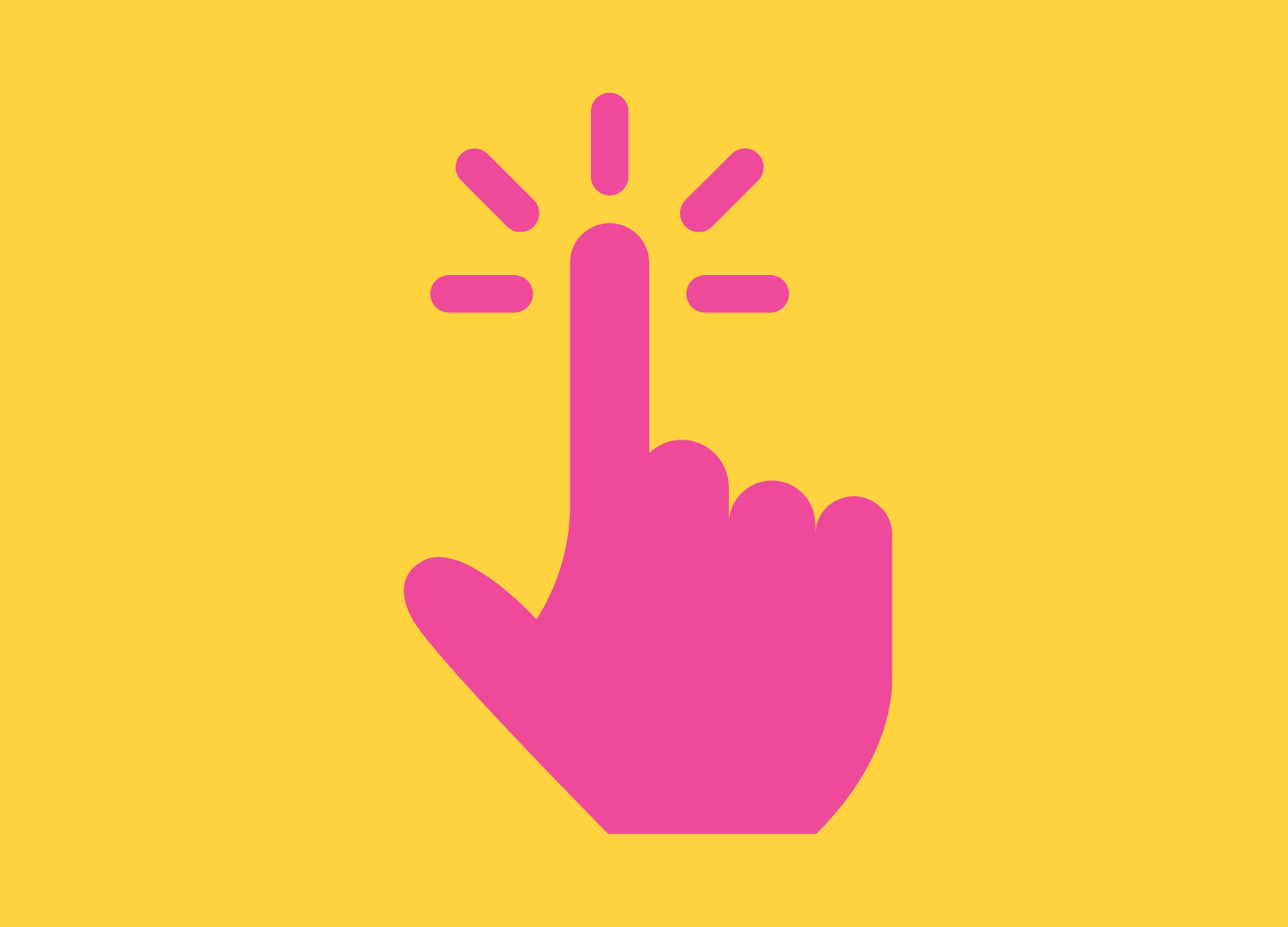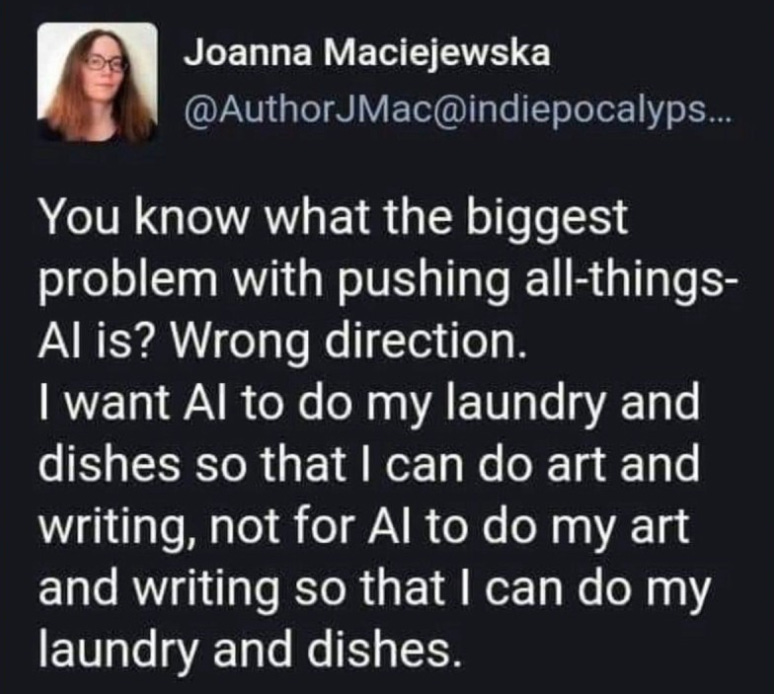The lure of THE BUTTON
When you're up against a deadline how do you get the writing done? Thoughts on the discomfort of writing and how to handle it - with a smattering of advice from Oliver Burkeman.
Hello Bec here,
I’ve been part of a writing group for a few years, and they have been a huge help in getting my writing done, providing clear structures for support and accountability. It’s my turn to submit, but today, I am staring at a blank page. The deadline was yesterday.
I’ve known about the deadline for weeks, but I’ve not been able to get to the writing. I’m not procrastinating exactly, it more complicated than that. Life has been busy and there hasn’t been space for the biggest priority for my business and creative life.
Enough of the excuses, I tell myself. I need to write 5,000 words or an outline of 1,000 words. Both of which will take longer than I have available. I need options.
That’s when I consider THE BUTTON.
Now, if my goal is to write 5,000 words, I can brainstorm lots of different ways to do that, I can reuse some old text, find a blog or newsletter and rework it. I could split the word count with Chris, after all, he’s writing half the book and my group have agreed to read the book, and they’ll never know who wrote what or perhaps even care.
Or I could hit what
calls THE BUTTON.Mollick is a professor at the Wharton School of the University of Pennsylvania where he studies entrepreneurship and innovation in what he calls our ‘AI-haunted era’. His Substack One Useful Thing and book Co-Intelligence explore what Artificial Intelligence (AI) means for work and education and what it can do for human potential. He believes that technology is a great co-pilot. He’s right, I experience that daily. My writing life wouldn’t get off the ground without my laptop and computer programmes, access to the internet, automatic spellcheck, ‘right click for synonyms’ - so many tools that keep my words flowing.
Yet, as technology advances we outsource more of our creativity to it, because it’s easy and quick to do. As a writer faced with a blank page and a looming deadline I am very tempted to ask AI to help me fill that blank page, to generate the right number of words, to help me hit my goal and get on with the other things I need to attend to. This ease is something that Mollick recognises too. He said:
“When you have a button that produces really good words for you, on demand, you’re just going to do that. And it’s going to anchor your writing. We can teach people about the value of productive struggle, but I think that during the school years, we have to teach people the value of writing.”
- Ethan Mollick interviewed on the Ezra Klein Show podcast
As much as I am tempted to hit the button, I decide not to. I sit with the discomfort of the blank page. While I have a short-term goal of submitting some words to my writing group, I have bigger goal of writing a book about a subject I am fascinated by but don’t as yet know enough about.
While the lure of THE BUTTON is strong, I need to find out what I think and writing helps me do that - but that is hard. And as a fully paid-up member of the human race and I don’t like doing hard things. However, if I’m going to get to grips with my subject and write this darned book I better get used to the discomfort.
Sitting with discomfort
The comfort zone is a place of safety, it’s nice there – perhaps a little hum drum, but essential for our survival. The opposite of the comfort zone is a zone of panic, which is a terrifying location where we are too overwhelmed to do anything.
Sitting between these two is a buffer zone of discomfort. It might sound a tad painful, and it will prove to be scary at times, but it puts us in a position to develop as writers. It is a place of productive struggle where Mollick hopes we will learn.
A while ago, I shared some advice from the writer Oliver Burkeman and about the concept of ‘good discomfort’.
» Read more: The ‘good discomfort’ of keeping going
Burkeman told me that creative work like writing feels difficult. We expect it to be this lovely feeling of flow and when that doesn’t happen we get ‘grouchy’ because it’s difficult. He advised that we trust ourselves to be able to handle it.
It’s uncomfortable, but you can totally handle that discomfort. You don’t need to try to power through it and make it go away. You can just say, ‘Okay, I feel reluctant about doing this. I didn’t particularly want to do it. It feels difficult and I’m going to do it at the same time.’”
- Oliver Burkeman, author of Four Thousand Weeks
Understanding that something is difficult and also that we can do it is at the heart of creative persistence. This is the subject I am fascinated by: why creativity is hard, why we choose to do those kinds of tasks, and how we can keep going.
When I started running a writing a retreat centre for Arvon, I thought I’d be able to find the secret to productive writing habits. After all, I’d be hosting talks and readings with some of the most successful writers in the UK. But the more I learned about their writing process the more confusing it got. Is the answer to get up early, to write daily, to set goals, to throw away their phones and lock themselves in the attic?
Of course there was no one answer, no secret, nor a magic productivity potion that would lead to success. However, I did discover one thing and that has been repeated back to me as I interviewed other writers and creatives. I found that all the so called successful creatives still experienced the same blocks, they still procrastinated, doubted their ideas, had inner critics - but they kept going. They didn’t ‘power through’ their doubts and fears. They hadn’t found the perfect habit that took away friction and discomfort either - something that Chris wrote about a couple weeks ago. But they had found a way to handle discomfort. To sit with it.
Output vs process
The playwright and screenwriter Tom Stoppard wrote this in his trilogy The Coast of Utopia: “Because children grow up, we think a child’s purpose is to grow up. But a child’s purpose is to be a child.’1
We live in a world that orients itself toward output - around the end goal. The process to achieve that output is often considered a means to an end. The purpose of writing a book is to produce a finished book. That the purpose of an education is to get a job. That the purpose of learning a language is to speak another language – and of course that’s all true. But it’s also true that the process to achieve those outputs is valuable too.
When you adopt an output-oriented mindset, the process becomes something that needs to be as efficient as possible. Discomfort becomes a ‘problem’ that needs to be ‘fixed’.
AI is not the answer
In many ways, you could consider AI to be the culmination of humanity’s obsession with output efficiency. It’s the answer to all our productivity prayers. No longer do artists, writers and creators need to engage in the discomforting, messy and slow business of making things and searching for the answer – time that could be better spent creating AI prompts that could give us more output.
But I worry that while it’s highly tempting and completely understandable to press THE BUTTON, doing so takes something fundamental and deeply human away from people. The creative process of is full of discomfort and friction but that is what helps create meaning and leads to true innovation and creativity.
I claim no special power in being able to resist the lure of THE BUTTON on this occasion - I’m sure I’ll succumb at another time. But I do think that the process of writing and re-writing, struggling to work something out is how we think, develop and grow.2
Keep going, Bec
PS The author Joanna Maciejewska sums up my entire argument more succinctly than I ever could in this post 👇👇
PPS If you are after a long read on a similar theme, check out this essay by Laurent Dubreuil on AI and poetry: Metal Machine Music: Can AI think creatively? Can we?
…we are at a pivot point. Now is the moment for us to compare the world of content generation with the open range of creation, so long as we can still see it. We have a choice. At the end of Walden, Thoreau writes, “There is an incessant influx of novelty into the world, and yet we tolerate incredible dullness.” It is up to us to determine whether we now wish to multiply dullness through AI or refuse to be subjected to it.
This was quoted by Oliver Burkeman in Four Thousand Weeks. I am starting to think that my button as actually asking what Oliver Burkeman would say about any given situation.
Before I sign off, I want to note that people have very different goals for writing. The goal for my own book is to discover what I think, which is uncomfortable. Your goal might be different and you might want to avoid as much difficulty as possible. I fully endorse your choice and encourage you to use the button to help you get the words down in the same way I encourage dictation, ghost writing, and editors to ease the writing process. However, when it comes to creativity and innovation a spot of discomfort is often the signal that we are doing something right and moving our own thinking forward as well as other people’s.









Thank you, Bec. I am definitely in the ‘keep going’ camp and this post has helped me do just that!
"The opposite of the comfort zone is a zone of panic".
If I may gently suggest, that's one possible opposite. What if another possible opposite were adventure and exploration into the unknown? Excitement vs fear. Like stage fright - am I scared to death? Building my energy to have the needed momentum? Both? Neither?
These have similar physiological effects, so what if we could choose how to interpret the discomfort?